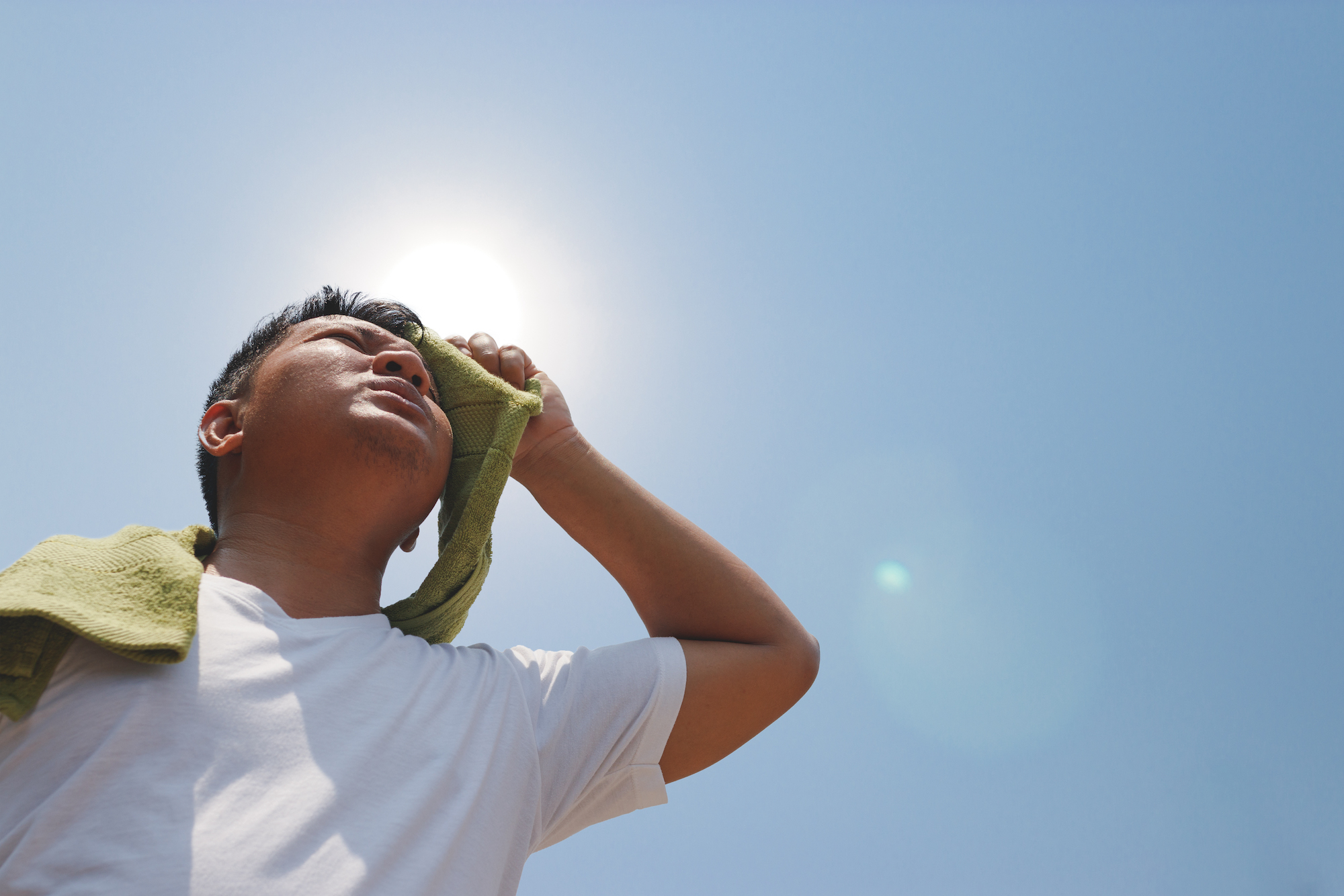Living in Hawaii we often assume our bodies are acclimated to hot weather. But with the historically chill Pacific Northwest affected by extreme heat and temperatures reaching triple digits across California, Nevada and other areas of the U.S. mainland this summer, experts agree our planet is getting hotter. People in Hawaii need to be reminded that heat is a dangerous health risk.
The CDC describes extreme heat as “summertime temperatures that are much hotter and humid than average” for a particular area. “Exposure to extreme heat can break down your body’s ability to control its own internal temperature. The associated health risks range from dehydration or muscle pain to more dangerous conditions such as heat stroke which can be fatal,” said Dr. Neel Chauhan, a family practice and urgent care physician and co-founder of Cloudwell Health. “Young and old, everyone is vulnerable. It’s so easy to be unaware of your exposure until it’s too late. You need to be vigilant.”
Early signs that your body is not reacting well to the heat include mild dehydration and heat cramps. Heat exhaustion symptoms such as heavy sweating, elevated heart rate, nausea and vomiting, headaches, dizziness and fatigue are more worrisome. Left untreated, heat exhaustion may lead to heat stroke, which means the body’s core temperature has reached the point where cellular damage and seizures may start to occur, a potentially fatal condition.
“The best way to treat heat stroke is to prevent it,” Dr. Chauhan emphasized.
Here’s a few tips for how to protect yourself and your loved ones if the weather becomes too hot to handle this summer.
Keep cool
Make sure you have access to a space with air conditioning especially during the hottest parts of the day. If you don’t have air-conditioning, you can also try to stay cool by spraying a mist of cold water over your head and shirt. Spend time at indoor public places such as shopping malls or libraries. Go to a park and sit under the shade of the trees which can be several degrees cooler than out in the concrete.
Protect yourself from the sun
Dress in loose, lightweight, light-colored clothing and wear a hat, sunglasses and sunscreen.
Hydrate, but don’t overdo it
A good way to know whether you are sufficiently hydrated is to pay attention to the color of your urine. If your urine is a really dark yellow color, that’s not a good sign. If it’s clear, that’s a good sign.
Drinking too much water could cause a potentially fatal condition known as hyponatremia, when the sodium levels in your body becomes diluted and drop abnormally low. If you do guzzle an excessive amount of water, have a salty snack on hand or a sports drink like Gatorade or Powerade to help restore body fluids, electrolytes, and salt balance. Avoid drinking large amounts of alcohol or caffeine which can be dehydrating.
Plan your activities
Exercising outdoors? If the weather forecast warns of heat and humidity, consider practicing less intense workouts and try to do them early in the morning or in the evening.
Although anyone can be affected by extreme heat if they’re not careful, certain groups are more vulnerable, including the elderly, young children, pregnant women, athletes, people who have heart disease or chronic medical conditions, and those who may be struggling with mental health issues.
“Be aware of your body,” Dr. Chauhan said. “If you’re experiencing any heat-related symptoms, stop whatever activity you are doing, get out of the sun and into a cooler environment as quickly as possible. Do whatever you can to lower your body’s core temperature, including wetting your skin with cold water. Hydrate with water or electrolyte drinks to help restore body fluids, electrolytes, and salt balance.”
If you or someone you know is experiencing symptoms of heat stroke, it’s critical to seek medical help immediately and then take action to get the person out of the heat and into air conditioning or shade and immerse them in cold water.
Learning how to keep your cool can be life-saving. Being aware of the health risks of extremely hot weather can help save you or a loved one from a dangerous health condition or tragedy that is altogether preventable.




